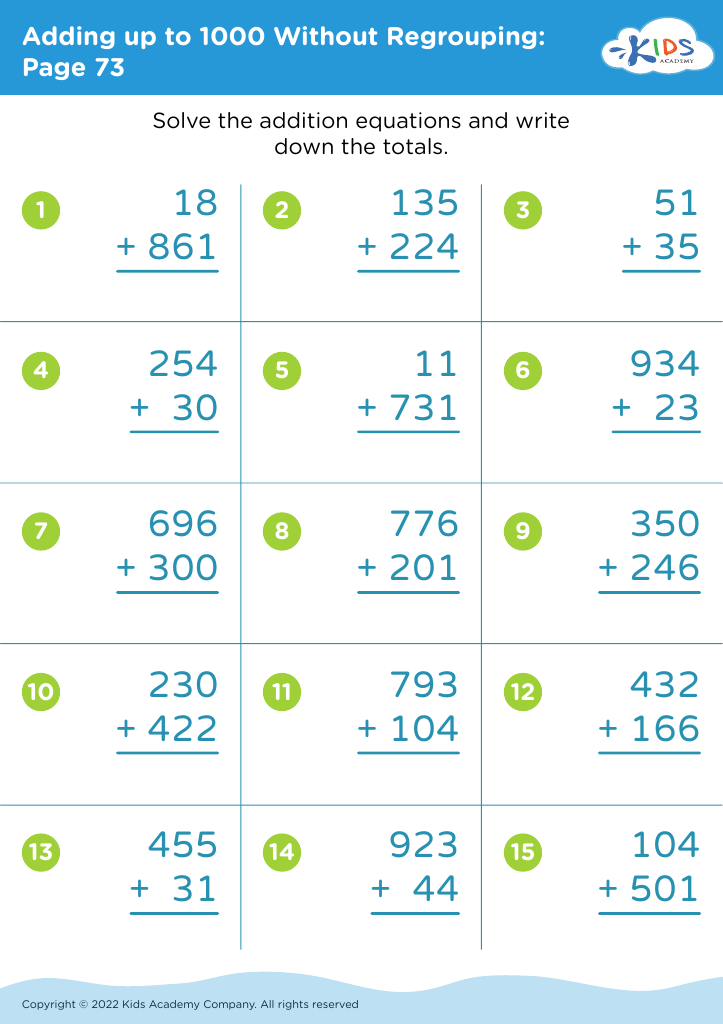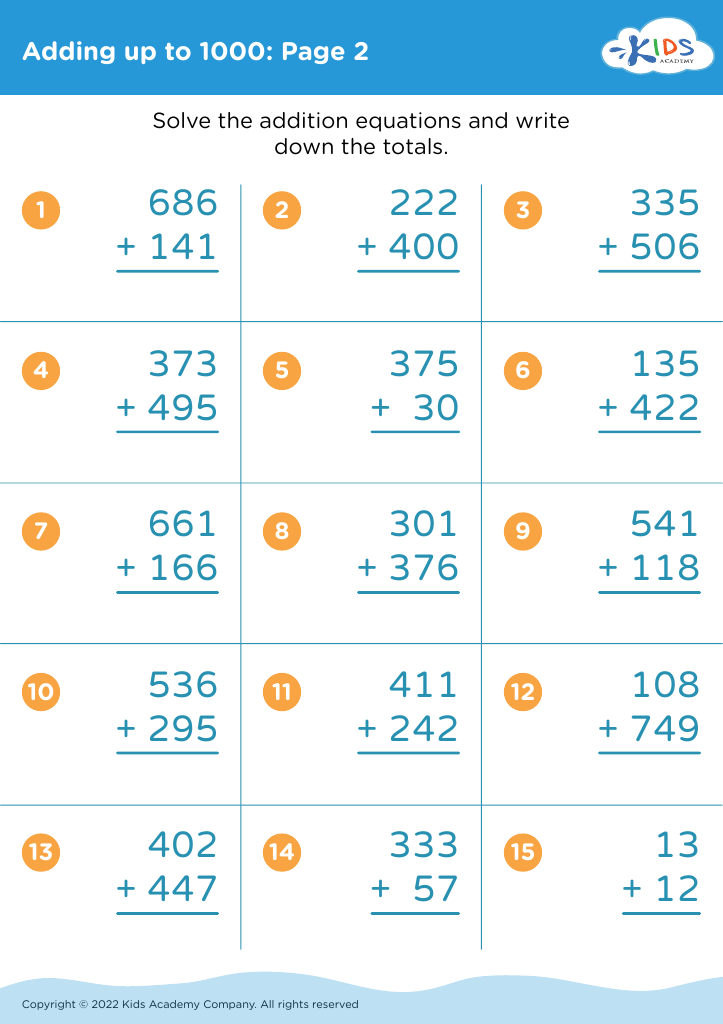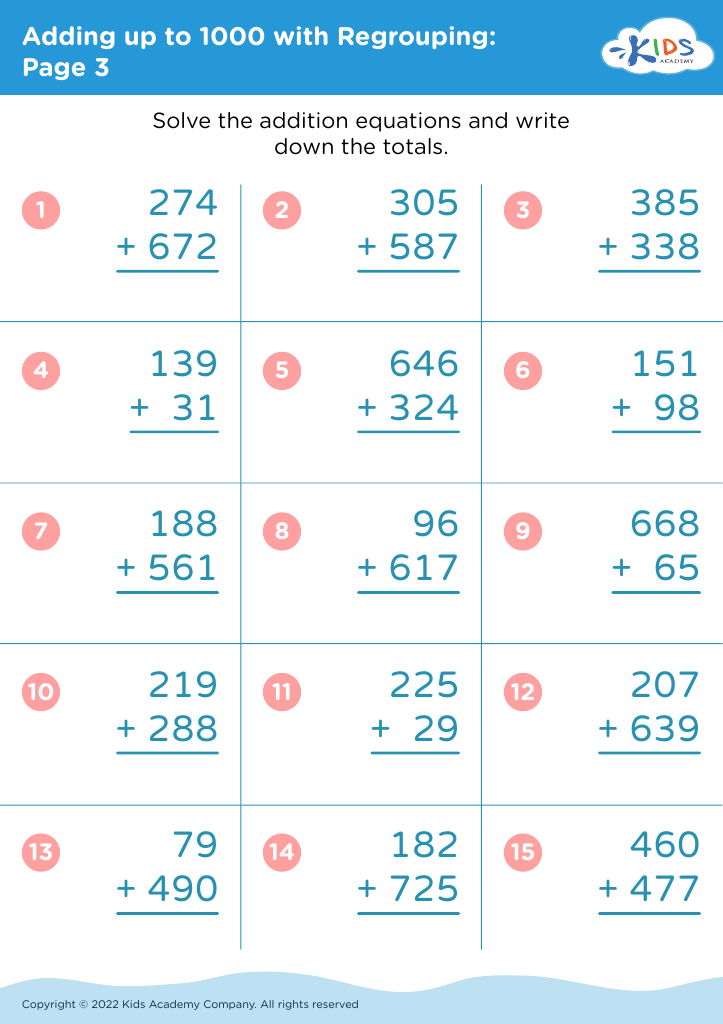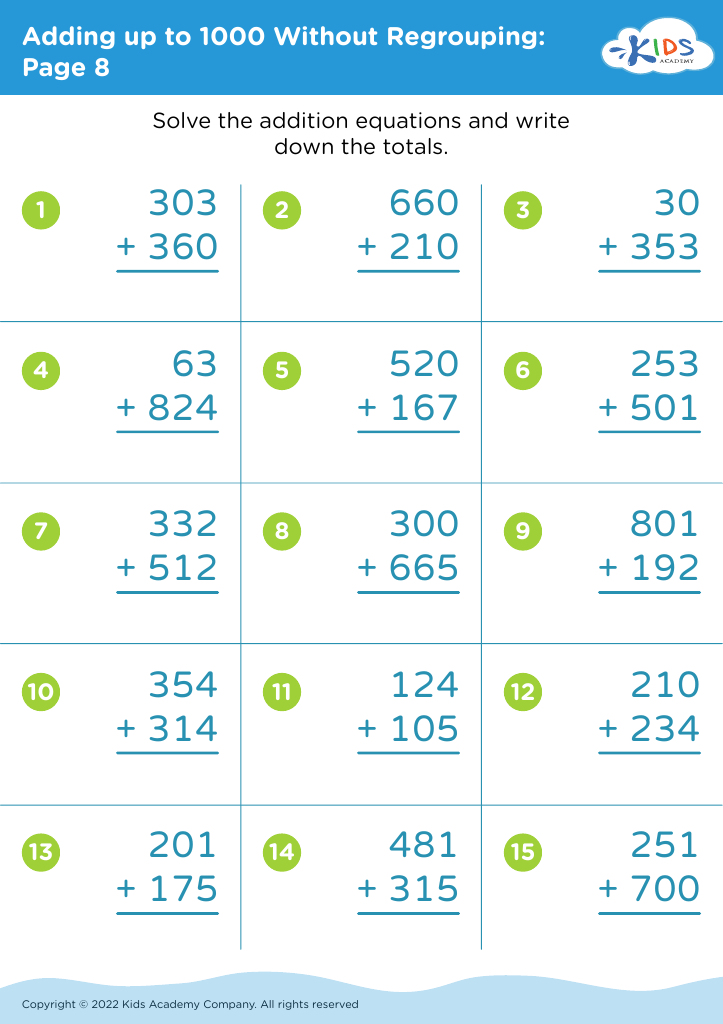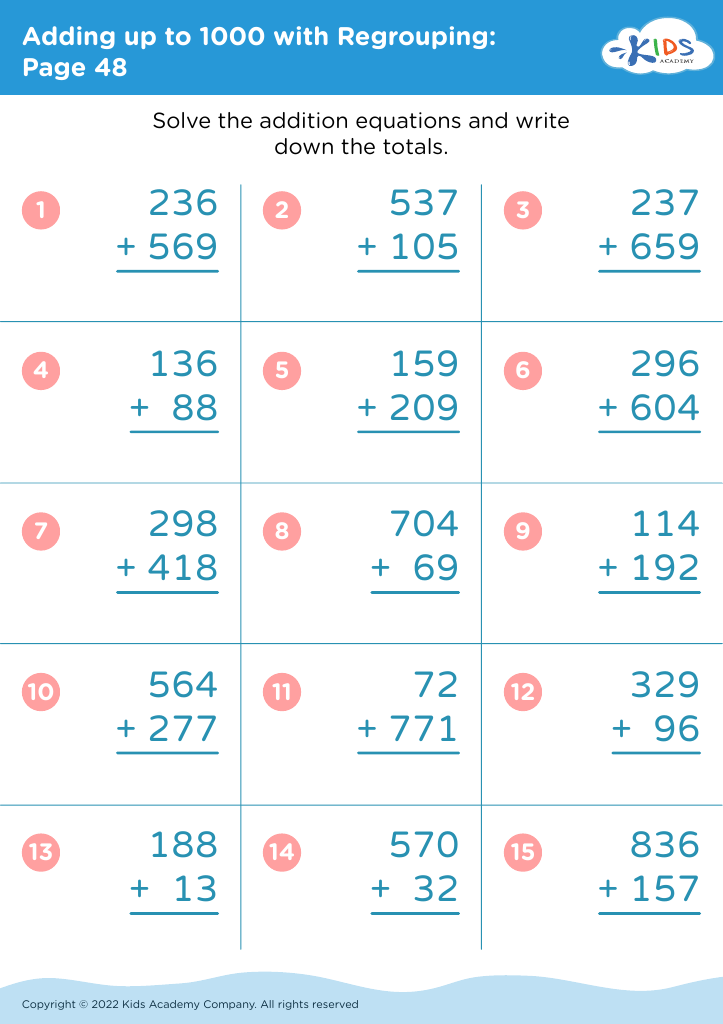Enhance comprehension Adding up to 1000 Worksheets for Ages 4-9
7 filtered results
-
From - To
Discover our comprehensive collection of "Enhance Comprehension: Adding Up to 1000 Worksheets" designed for children aged 4-9. These engaging worksheets not only make math fun but also strengthen understanding of numerical concepts. Each activity encourages critical thinking, allowing young learners to grasp the fundamentals of addition in a creative way. By integrating visual aids and hands-on practice, we ensure that fundamental math skills are developed effectively. Perfect for home or classroom use, these worksheets help build confidence and proficiency in mathematics. Empower your child today with resources that transform learning into an enjoyable journey of discovery and achievement!
Enhance comprehension is crucial for children aged 4-9 as it lays the foundation for their future academic success and lifelong learning. During these formative years, children develop essential reading and listening skills, making it vital for parents and teachers to support and enhance their understanding of texts. Comprehension goes beyond mere reading; it helps children process information, make connections, and think critically.
By focusing on comprehension strategies, educators can cultivate a love for reading, encouraging children to become independent learners. Activities that promote engagement, such as discussions about stories, asking open-ended questions, and using visuals, help children articulate their thoughts and relate personally to the material. This interaction fosters a deeper understanding and retention of information.
Moreover, developing strong comprehension skills in young learners builds their confidence and motivation, leading to increased academic performance. Parents play an essential role here, as reading together at home and promoting literacy-rich environments reinforces what is taught in school. Ultimately, prioritizing comprehension enhances children's ability to navigate complex texts, boosts their vocabulary, and prepares them for more challenging concepts, ensuring they are equipped for future academic endeavors.
